Training
We value knowledge transfer to our clients. As such, we train your sales and rental staff so that they are able to properly answer any questions that your customers may have and offer adequate advice. This will facilitate optimal utilisation of purchased or rented equipment.
Customised training
Our training courses are always customised to ensure that they address all the topics of your interest. An average training course takes 2.5 hours.
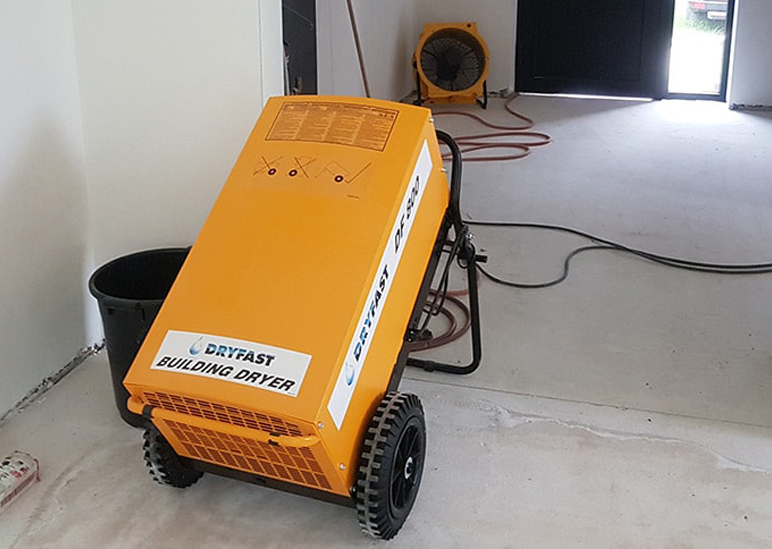
Construction drying
The fact that drying can be difficult and tends to be conducted in a (cost) inefficient way, is something we have known for years. Luckily, there is a lot of room for improvement in this regard.
Proper and effective construction drying requires certain factors to be cleared up in advance.
Parts training
- Fundamentals of physics
- Pros and cons of various drying methods
- Construction dryer operation
- Service and Maintenance
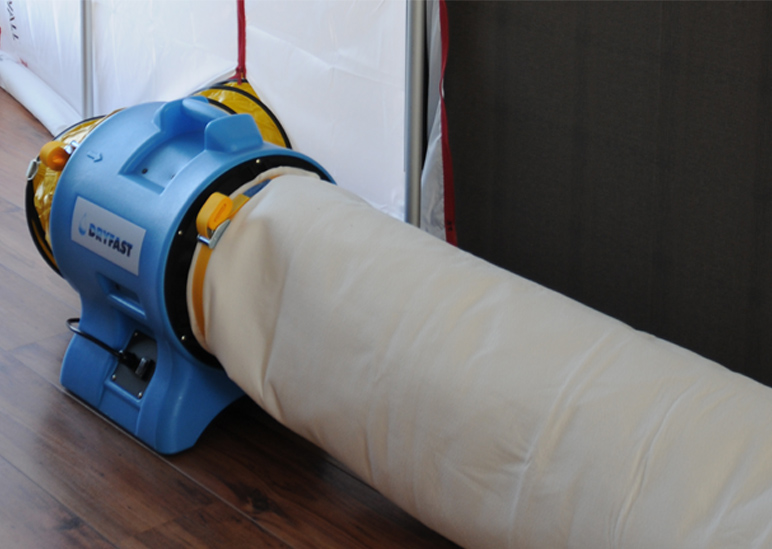
Dust control
Providing a dust-free work environment is mandated in the Netherlands and enforced by the Ministry of Social Affairs and Employment. In addition to the mandate, it is also important for your own health and that of others. We supply various types of equipment for dust control to help create a more pleasant and safer work environment.
Parts training
- The nature and consequences of the problem
- What solutions are available?
- How does room suction work and how does it not?
- Benefits of dust control now and later on
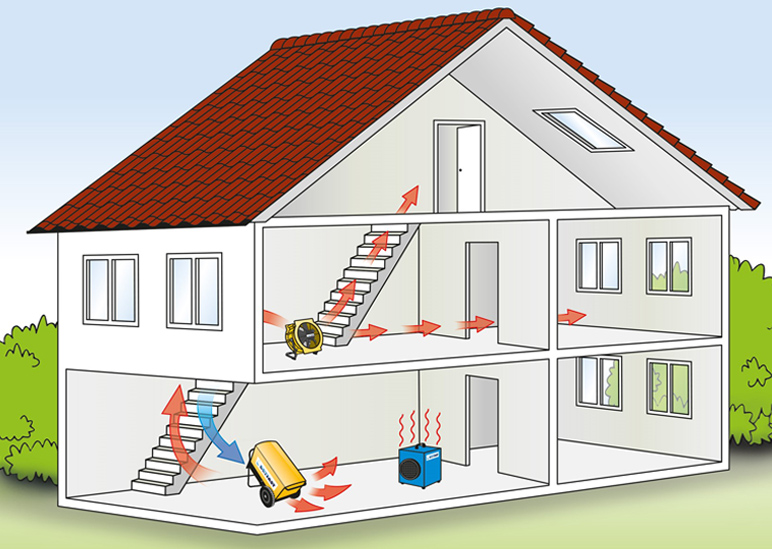
Heating
We all understand why a space is heated. But how and especially when to heat are slightly more difficult questions to answer. Especially when heating needs to be combined with drying. This training course is usually combined with the construction drying course.
Parts training
- What types of heating are distinguished?
- What is the effect of heating on the drying process?
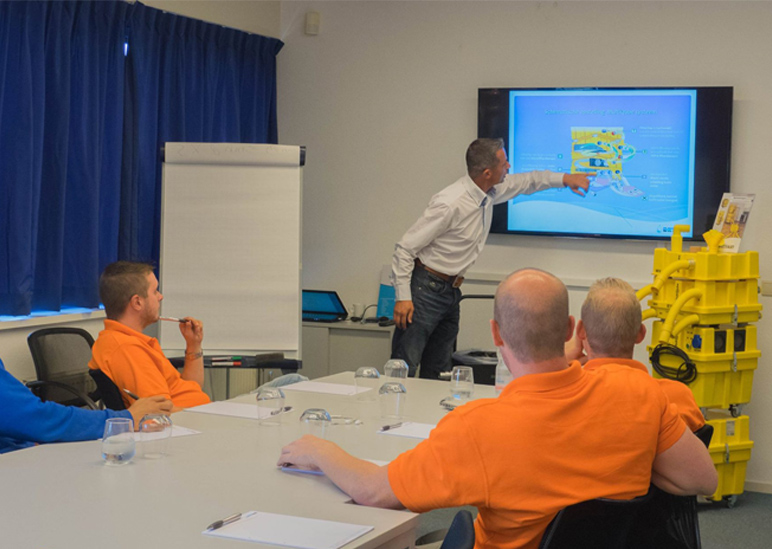
Insulation drying / water damage
Contrary to construction drying, the approach to drying water damage is different. This has to do with the cause, situation and conditions that the drying process is subject to. It also requires different tools in order to do it as efficiently as possible.
Parts
- What drying situations are distinguished?
- How can I dry damage quickly and efficiently?
- What monitoring capabilities are at my disposal?
- How can I keep the principal informed?
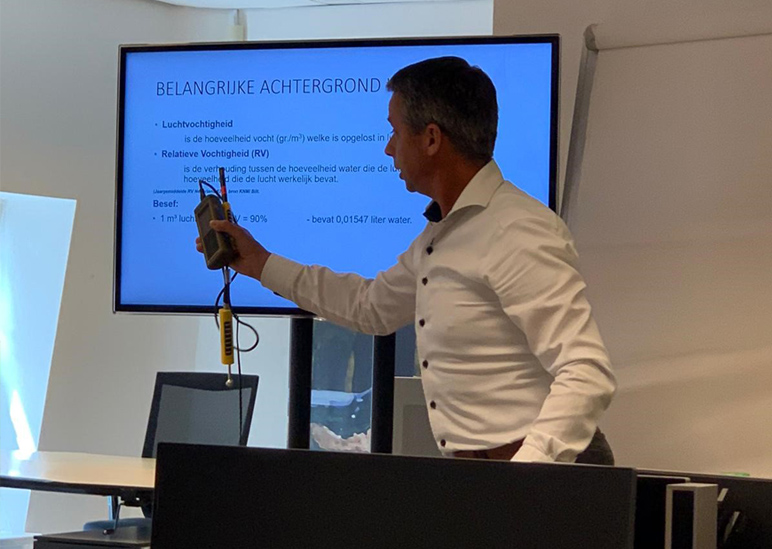
Leak detection
It seems that moisture issues have become more common due to new construction methods and/or construction errors in addition to the usual problems caused by leaks. Plus, attention to a healthy indoor climate is on the rise.
We have a wide range of leak detection equipment at our disposal to find and record the cause of the aforementioned problems. Leak detection is a skill that needs to be learned in practice, but we are happy to give you a head start!
Parts
- What is your objective?
- What equipment is suitable?
- Explanation of how leak detection equipment works
- Assessment of the most appropriate leak detection method
